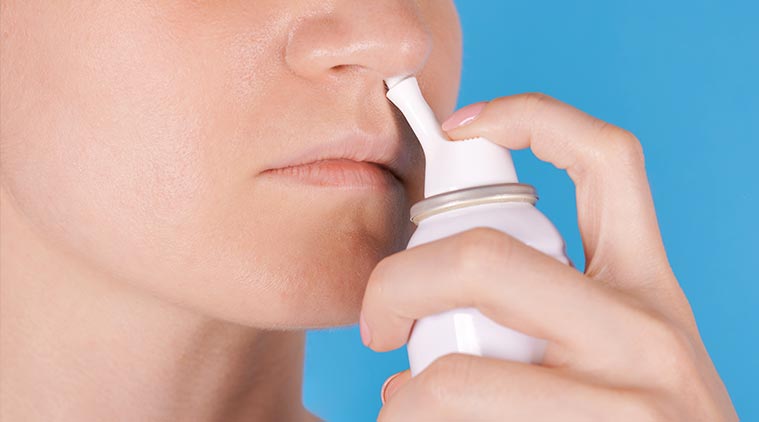📣 For more lifestyle news, click here to join our WhatsApp Channel and also follow us on Instagram
Nasal cleansers or washes: Know about the benefits and risks
"It’s crucial to use sterile water for this process if prepared at home. If not, it can introduce infections into the sinuses which were otherwise sterile," warned Dr Divya Prabhat, ENT Surgeon, Bhatia Hospital, Mumbai
 Should you be using nasal washes? (Source: Getty Images/Thinkstock)
Should you be using nasal washes? (Source: Getty Images/Thinkstock)Saline nasal washes have been known since time immemorial. Popular in ancient medicine, it has in the last two decades, and especially amid pandemic, become popular even in modern medicine, say experts.
“The saline isotonic nasal spray is very important to restore the normal mucociliary clearance, which is the single most important factor in the upper respiratory tract infection,” mentioned Dr Divya Prabhat, ENT Surgeon, Bhatia Hospital, Mumbai.
Every few minutes, the sinuses get cleared by the cilia and the new mucous blanket covers it up. The isotonic saline helps in maintaining the mucociliary clearance as it’s normal physiology of the sinuses, she explained.
 Nasal wash helps make the dry nose moist and allows the regeneration of cilia. (Photo: Shutterstock)
Nasal wash helps make the dry nose moist and allows the regeneration of cilia. (Photo: Shutterstock)
Effectiveness and benefits of nasal wash
It helps clear off the dust particles, the bacteria, the muco-pus hidden within the confines or clefts or the meatus of the nose. It also helps make the dry nose moist and allows regeneration of cilia. “In post-operative conditions, it is useful to prevent crusting and adhesions in the nose whether after FESS (Functional endoscopic sinus surgery), septoplasty, polypectomy, turbinateplasty etc. So, the use of saline sprays becomes useful as it is now available in fixed metered doses containers which force the saline into the clefts of the nose at an angulation which is parallel to the nasal planes,” said Dr Divya.
Risks
While you can create your own isotonic saline solution at home, which is done by mixing warm, sterile water with pure salt, known as sodium chloride, it is recommended that one uses over-the-counter premixed saline containers; as the perfect salinity is a must for the mucous clearance from the nose.
“It’s crucial to use sterile water for this process if prepared at home. If not, it can introduce infections into the sinuses which were otherwise sterile,” she warned.
Should it be used?
There is not yet definitive proof that nasal irrigation works for all respiratory problems. “However, there is evidence to suggest that it can be helpful in most of the cases of upper respiratory issues. Regular nasal irrigation reduced infections,” she said. Although there is broad support in the medical community for using nasal irrigation as a therapy, it has more of a prophylactic use than therapeutic usage for the various nasal and paranasal sinus conditions, she added.
For more lifestyle news, follow us: Twitter: lifestyle_ie | Facebook: IE Lifestyle | Instagram: ie_lifestyle
📣 For more lifestyle news, click here to join our WhatsApp Channel and also follow us on Instagram






- 01
- 02
- 03
- 04
- 05





















